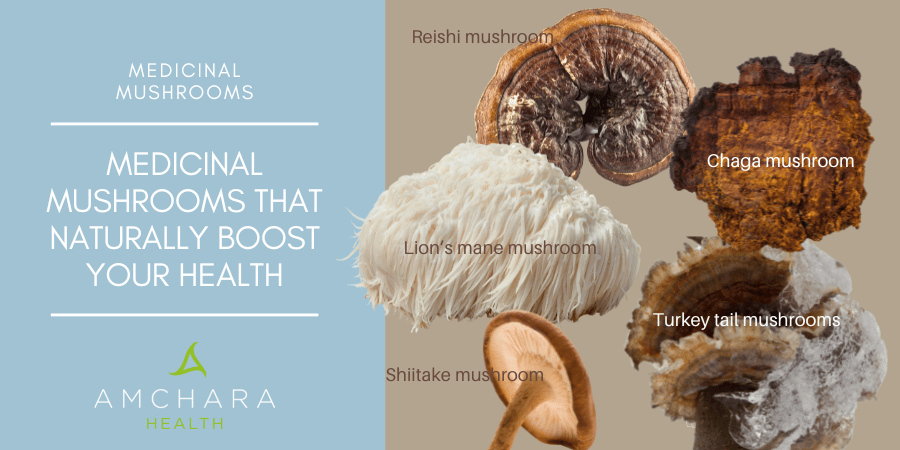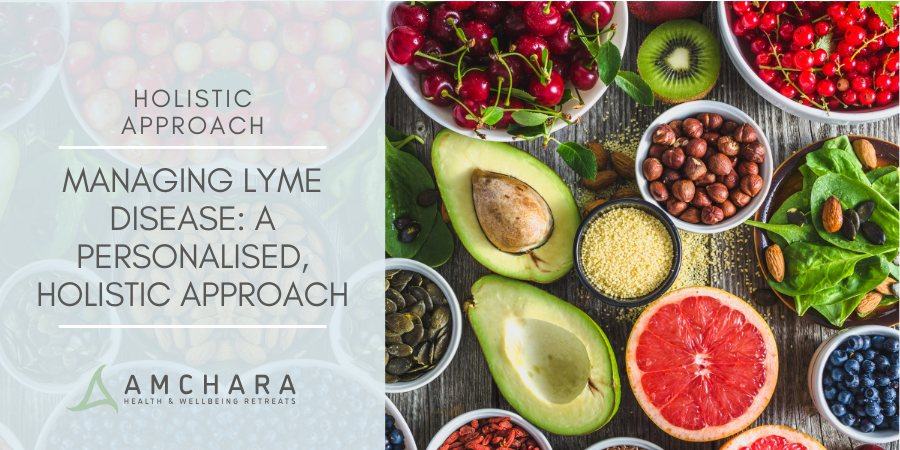Topics Covered in this article:
Medicinal mushrooms have a long and rich history of use in traditional medicine. For thousands of year, they have been believed to exert a range of health benefits, including being used as immune-boosters, antibacterial agents, and even remedies for inflammation, fatigue and chronic metabolic conditions.
More recently, mushrooms are gaining increased popularity in the West, being seen as an effective dietary supplement due to studies revealing their richness in various compounds such as polysaccharides, terpenoids, and proteoglycans, which are thought to have medicinal properties. Although the research into their specific health benefits may still be in its infancy, the preliminary results are promising.
In the modern internet world there is an overwhelming amount of often misinformation, especially regarding relatively new (re)discoveries such as medicinal mushrooms. That’s why our articles are always evidence-based and orientated towards a holistic and Personalised Health approach, to provide you with actionable knowledge and tips to help you on your journey to optimal health.
In this article, we look at what is known so far about medicinal mushrooms, as well as the extent to which they can support our health and wellbeing.
Types of medicinal mushrooms
Some of the most popular types of medicinal mushrooms include:
- Reishi – one of the most popular mushrooms which has been shown (in a mouse study) to aid in weight loss, as well as being beneficial in supporting the immune system, and even fighting cancer cells.
- Lion’s mane – a ‘pom-pom’-shaped mushroom which fosters the production of the bio proteins NFG and myelin, both of which are essential to brain health and mental clarity.
- Chaga mushrooms – which are filled with varieties of antioxidants, making them excellent contenders for fighting free radicals and inflammation.
- Shiitake – a mushroom which is already a popular stir-fry ingredient, but may also have medicinal properties rendering them incredibly good for the heart and circulatory system, as well as assisting with the inhibition of cholesterol production.
- Turkey tail – a possibly highly-effective cancer treatment due to its content of a compound called polysaccharide-K which stimulates the immune system. It has been approved as an anticancer prescription drug in Japan.
Proven benefits of medicinal mushrooms
Immunity and cancer treatment
Medicinal mushrooms have been most extensively studied in relation to their anti-cancer and immune-boosting properties, which is one of their main purported benefits. According to a study, compounds from certain types of mushrooms may be able to directly attack and destroy cancer cells.
Practitioners from many East Asian countries often recommend medicinal mushrooms as a supplementary cancer treatment. The evidence for their potency in this regard is ever-growing, with over 600 studies having been carried out worldwide to date, including one review in particular which suggested that certain fungi may indeed reduce the adverse effects of conventional cancer therapies such as chemotherapy and increase the chance of survival among cancer patients.
Despite this, not a great amount is yet known about the potential side effects of mycotherapy (the study of the use of extracts and compounds obtained from mushrooms as medicines or health-promoting agents), and more research is needed in this regard. Although a significant minority, some patients did report gastrointestinal reactions and changes to blood cell count which could result in problems with blood clotting.
Neurological benefits
According to a study published in the journal Planta Medica, fungi like giant oyster, Reishi and Lion’s mane may help to alleviate the symptoms of certain neurological conditions, especially those in which nerve degeneration and associated problems with movement and cognition play a significant role, such as Alzheimer’s disease, Huntington’s disease, multiple sclerosis, and Parkinson’s disease.
This is because regular consumption of mushrooms has a positive effect on nerve health, therefore protecting against neuronal dysfunction and increasing the quality of life for those who suffer from neurological disorders.
Metabolism
Medicinal mushrooms could potentially also be used to fight chronic metabolic conditions, which are most often related to obesity. A study put this down to the anti-inflammatory properties of fungi, which, it suggested, may help protect against hypertension and metabolic syndrome.
Growing evidence is also arising regarding the possible use of some medicinal mushrooms in treating Type 2 diabetes. Almond and Reishi mushrooms in particular may help regulate blood sugar levels and prevent the secondary complications of hyperglycaemia.
However, the significant majority of this research so far is based on findings principally from animal or in vitro studies, and so more human studies may be needed to consolidate these findings. But the research has undoubtedly uncovered some promising preliminary benefits.
Heart benefits
Mushrooms have also been shown to be beneficial in supporting the function and health of the heart, often being used in conjunction with traditional medical interventions to support the cardiovascular system, as well as the health of the body as a whole.
Studies show that mushrooms such as Lingzhi and Reishi, which are gaining more and more attention in the Western world as a supplemental treatment for cardiovascular health, contain polysaccharides that protect heart muscle cells by controlling and lowering blood glucose levels. They also activate anti-inflammatory enzymes that help maintain proper heart functioning, and have been shown to protect the heart from injuries caused by irregularities in the blood supply as well as insufficient nutrients carried by the blood to the heart.
Takeaway
Overall, medicinal mushrooms have long been believed to enact a wide range of health benefits on various aspects of the body, and these benefits are beginning to be rediscovered in the Western world thanks to much modern research being carried out.
While these studies are ongoing, rather than complete, with findings confirmed, the initial evidence looks undoubtedly promising in posing these mushrooms as an effective natural alternative for supporting immune function, reducing stress and anxiety, improving heart health, and boosting brain function.
Of course, always talk to your doctor beforehand to confirm if adding medicinal mushrooms to your diet in small amounts is safe, especially if you are taking medications or are pregnant. Certain mushrooms can cause side effects, so it’s never a good idea to increase your daily intake beyond 1 to 2 tablespoons per day, even if you do feel a boost in your health.
If you want to further supplement and boost your health by exploring various methods, why not come to Amchara for a relaxing detox health retreat in our tranquil surroundings? With expert advice on hand from our experienced practitioners, you can benefit from personalised health advice, tailored to your needs and goals to help you maximise your health gains.
Juicing and fasting may be recommended, according to your personal situation and unique health needs.
You will be immersed in a supportive and nurturing environment that enables you to switch off, relax and kickstart your health journey, including physical activities and empowering, educational talks.
Or why not try Amchara Juicery – cold-pressed, nutritious juices delivered to your door to help you boost your health, naturally. Created by Amchara’s expert in-house health team, you can enjoy a range of fresh, organic juice cleanses (and super soups) at home.
You may also be interested in reading:




